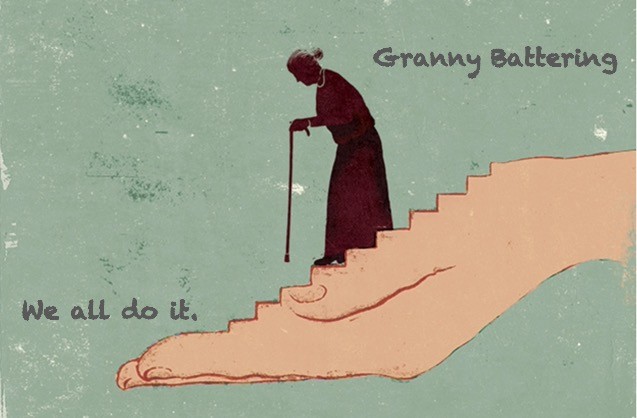Blog

What for Retirement?
Written by Luke Thomas
For decades, workers have treated retirement as an important part of the life cycle, the end of the ‘daily grind”. But whether they’ve planned to or not, not everyone finds themselves retiring.
What explains this apparent departure? The answer is linked to transformations in demography, society and the economy since the concept of retirement was introduced.
Where from Retirement?
To understand why some people never retire or want to, we need to understand “retirement.”
The natural way of this cruel world has long been that you worked to support yourself for as long as you needed to, for survival, comfort or sheer “get up to keep going” – society owed you little.
The idea of a period of non-working “rest” at the end of life dates back to 1880s Germany. The then Minister-President of Prussia, Otto von Bismarck introduced a government-funded old-age pension for Prussian citizens aged 70 and older. Bismarck’s idea was rather new. Before it, there was no agreement that your “working life” could come to an end while you were still alive. As long as you were living, you were expected to work! Thanks to Bismarck, the idea of a period of “non-work” following many years of work caught on around the world.
Singapore introduced The Central Provident Fund (CPF) in 1953 with a Central Provident Fund Ordinance, after which a Central Provident Fund Act came into effect on 1 July 1955. The introduction of the CPF came at a time when many workers, except those working in the civil service or in some of the larger companies, were not provided with any form of retirement benefit by their employers.
Over the next decades, the idea of retirement grew in popularity. While conceived as a defined contribution program from inception, the CPF has undergone many significant changes since 1955. Some of these changes include the creation of the Special Account and Medisave Account, as well as the liberalisation of the usage of CPF funds for other purposes such as housing and investments.
What keeps them going?
The reasons people may continue to work after the “traditional” retirement age of 55 may vary . They include:
- Life expectancy has extended well past the expectation of 60 years and has seen the retirement age increase to 62 years. Singapore has even introduced a re-employment period upto the age of 67, in certain conditions.
- A financial need to continue working or build up a cushion for later years.
- The desire to stay active and engaged in the work force.
- The itch to explore new kinds of work.
Whatever the reasons, the reality is that more and more people are working past the age of 62/67 retirement or rehiring ages and the idea of a career “off switch” may well become unusual in years to come.
A deeper look at the reasons some people never leave the world of work is illuminating.
Retirement is no longer expected
As time passed, the idea of retirement did not remain static. Instead, it has evolved and transformed as the economy and society changed and grew. Despite the fact that the idea of retirement is enshrined in social security programs around the world, the number of people over the age of 65 has increased dramatically. In Singapore it is expected to represent fully one quarter of the population by 2030.
When retirement was conceived, attaining the age of 60 was something a rare few attained. However, life expectancy around the world has crept past that age into the 70s and is approaching the mid-80s in some places. Not all workers over retirement age will now stop working or even feel the need to, from an “I’m worn out” perspective. Ill health is usually only a concern in the last 10 years of life.
Indeed, the economy cannot afford for workers to bow out either, both from the point of view of the withdrawal their still considerable energy from the economy and to avoid additional burdens on the state.
In an Economics Viewpoint review of Lynda Gratton and Andrew Scott’s new book, The 100-Year Life: Living and Working in an Age of Longevity, The Guardian newspaper says, “Until now, lives have been sliced into three distinct segments - education, work and retirement. This model is tidy and convenient for companies, but it is not going to be fit for purpose in a world where more and more people live until they are 100. They are going to start work later, take career breaks and spend time in their 60s and 70s acquiring new skills.”
Retirement could last as long as your working life
When CPF was introduced in 1953, a Singaporean at age 55 could expect to live another 5 to 6 years. Life expectancy in Singapore has now risen to nearly 84 years. Bear in mind that number is an average, which means that half of people who reach the age of 62 are expected to live beyond the average, additional two decades.
How so retirement from this viewpoint? A working career might last 25, 30, or 35 years and the new reality is that retirement could last nearly as long and, as life expectancy continues to rise, extend even longer than the average person’s working years.
This observation is particularly relevant to women, who may start working later than men or take time away from paid work to raise children or care for other family members. Women in these categories tend to have fewer years of employment and less time to build up social security credits (CPF) and retirement savings. This is especially worrisome given that women, on average, also live longer than men.
Is longevity a risk?
On a national scale and given Singapore’s already small population, the shrinking population (women are also putting off child rearing) combined with a whole quarter of the populace ‘ageing out’ by 2030 can deplete the remaining human resources of an already resource starved nation. Policy options available to the Government to deal with the shrinkage are doubly complicated by the public’s disaffinity for importing workers and talent. Unless this trajectory is significantly altered, a shrinking economy might eventuate.
If you are a twenty-something who might be able to expect to live until nearly your 100th birthday, when should you expect to retire? If you put away 10% of your earnings and expect to live on 50% of your final salary, the estimate is that you will have to work into your early 80s.
For those concerned about this “longevity risk”, ie. the possibility of living a very long time after they retire, or the risk that you will outlive your money, the solution is to spend additional years in the workforce.
The math of moving one year of life from the “non-working” side of the ledger to the “working” side is simple: Every year that you continue to work reduces the number of years for which your retirement nest egg has to sustain you. The length of time spent in retirement is uncertain, thus continuing to work - generating income and postponing withdrawals from your retirement nest egg and allowing it to grow - provides more certainty of the adequacy of your retirement finances. For those who are Longevity Risk-averse, i.e. you don’t want to fall back on children or the state, this simple solution can be very appealing - and might lead to a “never-retire” plan.
There’s growing room for post-65 workers in today’s economy
A big driving force of the modern economy is disruptive technology. Computers are getting smarter and that threatens to hollow out the labour market. Simply put, robots will do more of the routine tasks that have traditionally offered stable employment to workers and some professionals as well.
So how much more turmoil does this advocacy for older workers to remain in the workplace pile onto this already bleak, view?
Economists have concluded from the evidence of the past two centuries that technological change creates rather destroys jobs. They look on the so-called “lump of labour” concept, the idea that there is only so much work to go round, with some derision. As machines have taken over from humans in the manufacturing sector there has been rapid employment growth in the service sector to compensate.
Moreover, René Böheim’s (Johannes Kepler University in Linz) research found that there is no trade-off in the employment of young and old workers and higher employment for older workers coincides with higher employment for younger workers. His research points to increasing the retirement age also increasing younger workers’ wages.
With longer lifespans, an increase in the number of people over 65 and a declining view of retirement as an “off switch”, the economy continues to make room for people who want to work beyond that age. A case of creativity engendering longevity.
The Encore Career
In recent decades, a new wave of working-after-65 attitudes and practices have emerged. This includes people remaining in their careers after reaching the conventional retirement age, starting second or encore careers or opening businesses and pursuing self-employment after decades spent in more traditional work settings.
“Successful entrepreneurs are middle-aged, not young” according to Age and High-Growth Entrepreneurship, a paper by Pierre Azoulay and J. Daniel Kim of MIT Sloan School of Management, Benjamin Jones of Northwestern University’s Kellogg School of Management and Javier Miranda of the US Census Bureau.
The “post-retirement” career can often provide many of the features older workers prize:
- Flexibility;
- Smaller commitment of time and energy;
- Working at that which more closely matches individual preference; and as
- A way to reduce Longevity Risk by continuing to generate income
Having one (the post-retirement career) would also allow other sources of retirement capital, such as CPF or private retirement savings, to continue to grow as it remains untouched for a few years.
Should you stay or should you go?
If you’re approaching the “traditional” age of retirement and contemplating whether you’re going to remain working, what are the issues to consider?
First, of course, decide if you can afford to retire. Could you have saved enough for a 25 year retirement after 35 years of work? Is your nest egg tied up in the value of your home? Have you considered inflation? Don’t let the low inflation trends of the last decade or more lull you into ignoring the consequences of a change in the inflation and cheap money trajectory.
Next, consider whether you would like to continue working. How soon will the shine of not answering to the boss wear off after you turn on the TV and can only find programming you’ve seen? Will the lack of stimulus from the social effects of work lead to boredom and loneliness? What impact will being at home all day, every day, have on your relationship with your significant other?
Your overall health prospects should also impact your decision, including an assessment of how it may change in coming years. Be mindful that healthcare costs rise with age and the underwriting assumptions behind your health policies lead to rising premiums just as your income tails off.
There is evidence that the cessation of work has a deleterious effect on health as the ‘healthful’ stresses and social interaction are withdrawn. At a minimum, consider volunteering for regular service at a charity or find a community to visit with regularity if you choose to call it a day.
If the answers to the above lead you to consider staying in work, then decide whether you’d like to stay in your current work situation or explore something new.
If staying active and engaged are the stronger drivers than income or if you expect your income needs to reduce, now that your home is paid for and the kids self-sufficient, then part-time work may be worth consideration. Fear not for how, as this article’s authors are working on a solution for the over 55s to find ad hoc part-time work. More on that when we have something to crow about.
All in all, deciding not to throw in the towel or deciding on an “I’m not old enough yet!”-retirement-plan can be the source of continued fulfilment and income. Choosing not to retire provides the chance to remain in a personally rewarding setting, lead to the exploration of new roads while strengthening your financial position for the coming years.
Published on Linkedin on 28 September 2021

A Requiem for Retirement
Written by Luke Thomas

Sequenting: Jettisoning Retirement and financing a multi-stage life
Written by Luke Thomas

Retirement – The lies we tell
Written by Luke Thomas

Retire beyond work and age
Written by Ashish Marwah

The Rise of Silver Mentors
Written by Ashish Marwah

‘Granny Battering’. We all do it.
Written by Ashish Marwah

A Point of View on Ageism
Written by Ashish Marwah

Bridging Generational Divides in Your Workplace
Written by Debra Sabatini Hennelly and Bradley Schurman

Must Gig-workers Pay Tax?
Written by Prisca Ang, Straits Times

Eligible Platform Workers Get CPF Boost
Written by Chor Kieng Yuit, Straits Times

More Companies Are Using Marketplaces To Find Freelance Workers
Written by Luke Thomas

Hiring Independent Professionals Need Not Be Painful
Written by Luke Thomas